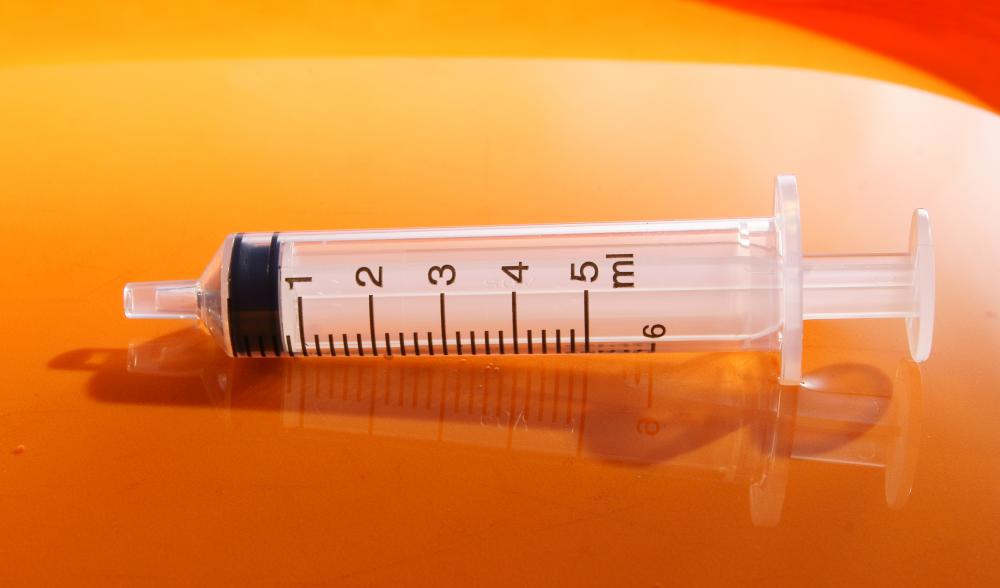At WiseGEEK, we're committed to delivering accurate, trustworthy information. Our expert-authored content is rigorously fact-checked and sourced from credible authorities. Discover how we uphold the highest standards in providing you with reliable knowledge.
What is Oral Administration?
When most people take a medicine they usually take it by oral administration. This often means swallowing the medication, whether it comes in the form of a pill or a liquid. There are some others forms of oral administration that aren’t quite as common, and where instead of swallowing people let the medicine dissolve in the mouth where most of it is absorbed in the membranous tissues in the mouth. All of these forms, with the possible exception of injecting medication into the tissues of the mouth, such as with a novocaine shot, are orally administered, and a working definition of the term can thus be described as medications taken by mouth.
There are many medicines effectively administered through swallowing them, but one concern in swallowing medication is its pathway to eventual absorbance. Meds have to travel down the esophagus, making it to the gut where things like the acidity in the stomach and elsewhere can cause some of the drug to be lost. When people design an oral medicine, they have to be able test its bioavailability or how much of that medicine actually reaches the bloodstream.

Sometimes a medical condition is not suited to oral administration treatments. Either the medicines needed are so delicate that they don’t survive the digestive system or the treatment needed is much more immediate. For instance, very serious bacterial infections may require intravenous antibiotics because these can begin immediate work fighting the infection. They may be the same antibiotics that are also available in oral form, but orally taking them would delay cure. Alternately, some drugs like insulin have to be injected because insulin is notoriously unstable and unlikely to be as useful if swallowed.

One bridge between oral administration and injection are drugs that are dissolved in the mouth, either on the tongue, under it, or in the corner of the cheek. These don’t pass through the digestive system and instead pass into the mucus membranes. From there they fairly quickly join the body’s circulation and have not lost considerable bioavailability, although digestive enzymes in the mouth could degrade medicine levels to a certain degree. These may be useful for quick treatment and they include medicines for angina, allergies, and others.

A complaint about some oral liquids, chewables, and dissolvable medications is that they can taste terrible, and many people would prefer a pill that can be more easily swallowed. First, they may taste terrible on purpose because making good tasting medicine might encourage young children encountering it to overdose quickly. Second, pills are not for everyone. Some people either naturally or due to some condition have great trouble swallowing pills. Fortunately, there continues to be new advances in oral administration, and many people may have more than one choice in how to take a medicine orally.
AS FEATURED ON:
AS FEATURED ON:

















Discuss this Article
Post your comments